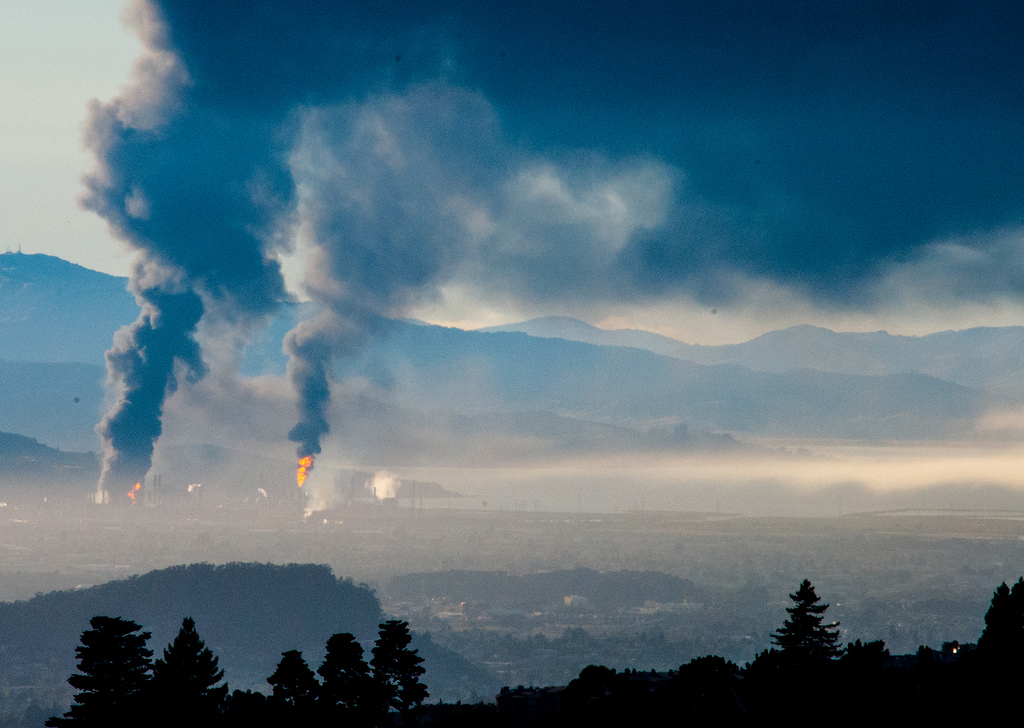Details of the agreement have not been released, but Richmond city officials said Wednesday the oil company is not admitting fault in connection with the fire and the deal does not force any reforms at the refinery.
Richmond Mayor Tom Butt said money from the settlement will go toward capital improvements like rehabilitating city-owned buildings and parks. Chevron's Canessa said the funds would be used for public safety, education and economic development.
The settlement once again highlights tensions between the mayor, the city's former mayor and more progressive members of the City Council.
Butt said he believes the city lost a chance several years ago, when there was more attention placed on the refinery fire, to get more money from Chevron.
"We could have settled this lawsuit for probably $30 million," Butt said.
The case dragged on and then last February the judge hearing the case, Contra Costa County Superior Court Judge Barry Goode, dismissed two of Richmond's claims against Chevron.
Goode ruled that the city failed to show the oil company was engaged in "ultrahazardous activity" that led to the fire. He also dismissed the city's claim for damages due to lost property tax revenue stemming from the blaze.
Butt blames former Mayor Gayle McLaughlin and other members of the Richmond Progressive Alliance for the missing the opportunity for a larger settlement.
"McLaughlin and her RPA buddies thought this was a $1 billion lawsuit," Butt said. "They were really unwilling to even consider settling it for tens of millions of dollars."
McLaughlin, who is running for lieutenant governor, said in an email that the agreement represents "a small settlement for what our community went through" and is "not a good settlement in my view."
She also rejected Butt's charges, saying she has "absolutely no idea" what the mayor is talking about.
"I think it is pretty typical of Tom Butt to put out false accusations," McLaughlin said. "It is another example of him doing dirty politics."
Councilwoman Jovanka Beckles, an RPA member running for the state Assembly who last week got into a public spat with Butt, was the only member of the council to abstain from voting on the settlement.
"We certainly deserve more than $5 million," Beckles said in an interview Wednesday. "I also don't like the fact that there were no reforms to the refinery at all."
Like McLaughlin, Beckles challenged Butt's claim that progressive councilmembers are to blame for the low settlement figure.
"The mayor often shares information that's not true," she said.
Investigators determined that the fire broke out after a severely corroded pipe in one of Chevron's crude units began leaking.
The fire prompted an investigation by the federal Chemical Safety Board . In 2013, the California Division of Occupational Safety and Health issued 25 citations against the company in what the agency described as the highest penalties in its history.
Cal/OSHA find that Chevron did not follow the recommendations of its own inspectors to replace the corroded pipe and that it did not follow its own emergency shutdown procedures.
Last October new regulations to strengthen workplace and environmental safety at the state's refineries took effect.
Chevron and Richmond city officials, are expected to issue an official announcement about the settlement this week.
KQED's Alex Emslie contributed reporting to this story.

